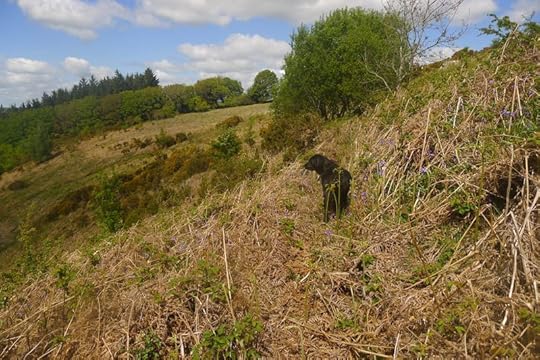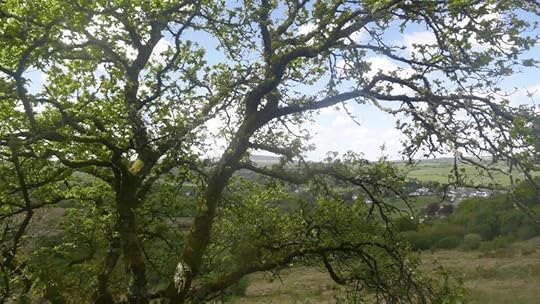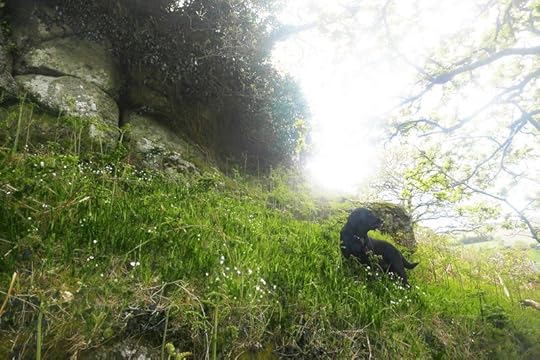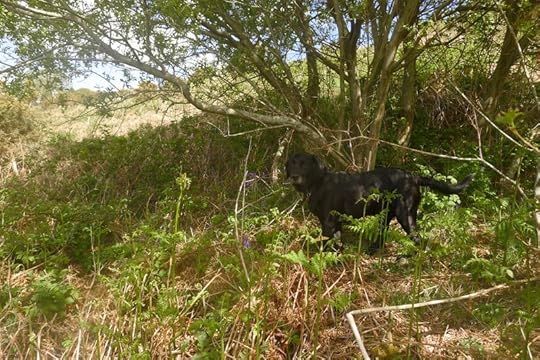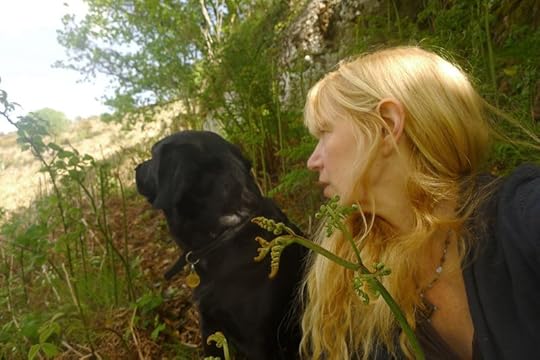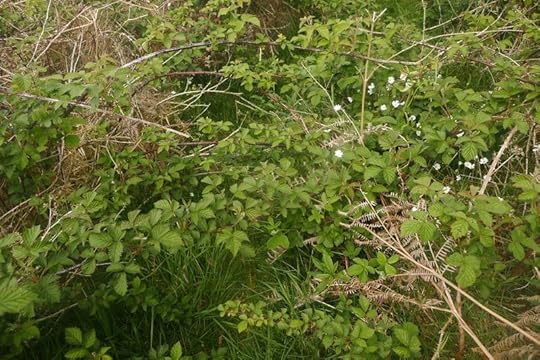A little touch of grace
One last post on work/life balance, this time focused on visual art, with passages from Daybook, the journal of the American sculptor and painter Anne Truitt (1921-2004).
At this point in Truitt's journal, she is the single mother of three children (aged 14, 16, and 19), supporting her family on the proceeds of her art and a small inheritance. She has just had two major retrospectives of her work at The Whitney Museum in New York and The Corcoran Gallery in Washington DC, and yet the earnings from her work are still barely enough to fund the expense of making sculpture and to her family going. Truitt consciously strives for balance, and weaves in and out of that state of grace as studio life and family life rub against each other, smooth and rough by turns:
September 10, 1974
"The familiar strain of sustaining the various demands of daily life," Truitt writes, "is once again a whine in the back of my mind. As I move from cleaning the house to ironing to cooking to working in the studio to helping the children with their homework, even in the atmosphere of satisfaction these activities evoke, their inexorable sequence jerks my body into a faster pattern of response than is natural to it.
"I could lower my standards, but in doing so would sink with them, taking my children with me. It is not necessary for us to have candlelit dinners every night. But the ceremony of meals has always been important to regard. Where else can children learn so easily and pleasantly, and at such range when guests are included, what it is to be grown-up? The world of children is fascinating but very personal. The presence of adults in the full cry of conversation, with opinions, interests, engagements, and responsibilities discussed, crisscrossed by agreements and disagreements, laced with rhetoric, is so pungent with variety that children can learn without harm to their self-respect that they are, for all their interest to themselves, on their way to larger definitions.
"Doing my duty as well as I can, is essentially self-serving. It is only be attending to tasks and responsibilities as they arise that I can prevent myself from feeling angry that I cannot work in the studio as much as I want to. This is particularly true now, fresh as I am from the time at Yaddo when I was free from all demands other than those I made myself. Anger at once excites and deadens my mind. The only answer to it I have found is efficiency. So I have tried to train myself always to keep abreast of the household routine in order to set myself free for clear concentration in the studio."
October 7, 1974
"All told, I now have available about one hundred dollars in ready money. This is too low an ebb. Yesterday my heart pounded all day and my left eye is jumping and jerking. The struggle is to hold myself submissive to a process of diminishment. There is a point at which lack of money feels like a draining of bone marrow. I begin seriously to contemplate taking a routine job of some sort but am loath to do so. Not out of laziness but because I fear the sickening failure implicit in betrayal of self, the spending of my energy drop by drop instead of into the waves that lift my work into existence."
October 8, 1973
"Andr�� Emmerich [Truitt's gallerist in New York] has once again come to my rescue. He has advanced me a sum on a prospective sale."
October 9, 1974
"I am sick again. The tension mounted yesterday, unbearably. I got everything ready for the children's dinner and went to bed. This morning I have a sore throat and a cold.
"The insecurity drained me below my level of endurance. It is an interesting process to watch, and this time I did reasonably well, I think: my savings and then my daughter Mary's savings, which she sweetly lent me, and then eking from day to day, no bills owed except a recent one for $92.00, and all with a fair degree of equanimity. It's my habitual pattern to do all right in a crisis and then to have a reaction. Each time the pattern repeats, the strings of my being seem stretched further into weakness. Or could it be that my sight is too short to see those strings which are strengthened? Perhaps it is a realignment of energy. I keep hoping to learn. But I get discouraged because I don't seem to have learned fast enough in the past in order to forfend draining in the present."
November 1, 1974
"Last night I sat in my quiet living room with deep contentment. A light hand seemed to have touched each object, leaving it refreshed. When Sam finished his bath, I went upstairs to mine and to my peaceful dark bedroom, all open to the night wind. The tangle of the last two months is unraveling. I marvel at the ease and speed with which events take place after such a blockage. Like brook water relieved from matted weeds, they positively gurgle.
"The studio is moving in orderly fashion toward serenity as one finished sculpture after another stands free in its coat of glassine paper to await its future fate. The children and I thread smoothly in and out of one another, each on our appointed rounds in the winter routine. The garden is raked, forked, turned, and mulched, muted to dun, quiescent. A rhythmic exchange is making everything move easily. Every demand is met and matched by an appropriate energy. There seems to be nothing I can do to make this happen. I can only be alert to the current and make sure to ride it when it does happen."
November 11, 1974
"This winter I cannot make new sculpture, as every penny goes into the household. There are advantages. My health is better because I do not have to balance long hours of heavy work with other responsibilities; I actually feel buoyant some of the time. And distance from it changes my perspective on my work. That's all very well, but I miss the flow of daily production, the pleasure of moving ahead a step or two each day toward the realization of a concept."
December 7, 1974 [after a professional engagement at the University of South Carolina]
"I did all right, I think, as a visiting artist -- lecture, class visits, seminars, critiques -- but I am left uneasy. The balance between artist and person is somewhere in question here. It is natural for me to answer needs, to meet them and to fill them. It is not the natural woman who is the visiting artist. I feel very uncomfortable. I betray myself. Yesterday in a seminar of senior and graduate students, a student asked me why I had given up psychology for writing and writing for sculpture. I told them in a personal way. Openhearted, falling into the pit of the cult of openness, I laid myself out, dissected like a laboratory fish for them to pick over. I could so easily have said, 'Because I found it didn't serve my purposes,' and that statement in itself would have been enough of a lesson.
"Where does the balance lie? The mother in me, the one who sees the students as if they were children wandering in a dark forest, wants to rush to them with whatever light I carry; I should stand, I now see, with that light, such as it is, and let them find me. They are not children in the first place, and not my children in the second. I can serve them better, leaving them more cleanly themselves and me more cleanly myself."
December 9, 1974
"Daniel Brush, a young artist who is a friend, was able to take this trip with me and share the driving, and the last night before our return to Washington, we sat in his room and talked. He smoked one of his expensive cigars and I smoked cigarettes until we got these uneasy doubts of mine clear in our heads. I kept sitting and sitting, waiting and waiting for Daniel's intelligence to ferret out what was bothering me: a root buried deep in my muddy thinking about the artist in me. Sure enough, he finally rounded on it. 'Let's say,' he said, 'that someone else had made your work -- Beatrice Truitt, say. How would you feel about her?' Loyalty instantly rose in me, a wave of profound feeling about that person -- I could see her -- who worked day after day into dark winter evenings in her quilted athletic suit, booted and hatted against the cold, putting on "just one more coat" before piling the painty brushes into the children's old Easter basket to take them home for washing. In that second, it became clear to me: I was responsible to her, to Beatrice, to Anne Truitt, who had worked and worked, whose work, against all likelihood, had been recognized to be art of some quality. It was Anne Truitt who had been invited to lecture, to speak to students about their work, to share her experience, I, Anne, have other experience, private experience, as useful perhaps, but to be shared by choice in other contexts, never again to be confused with Anne Truitt's experience in art.
"I cannot say how relieved I felt when I finally returned to my own room to cherish my lightheartedness into sleep. Anne Truitt and I are together now, free of one another, at one another's service."
December 24, 1974
"I feel a little pulled at the seams. Too much is happening too fast for me to integrate. Life unrolls like a Mack Sennett comedy. The film is so speed up that events threaten to splinter into nonsense."
January 1, 1975
"The ground smells of spring. I am glad to be delivered once more from the dark solstice into the turn toward growth. January is my favorite month, when the light is plainest, least colored. And I like the feeling of beginnings."
January 25, 1975
"Two floors underground in the Washington Hilton Hotel yesterday afternoon, elevated by six inches of platform skirted with a red-pleated frill, I sat on a panel of five artists discussing how to endure in art. We said a good deal, but it all came down in the end to a stubborn feeling on our part that you just had to keep going, no matter what, and in the face of not knowing what the results would be.
"It was Jack Tworkov who said it best. 'Sometimes you finish a painting,' he said, 'you look at it and it looks all right and that's a little touch of grace.' "
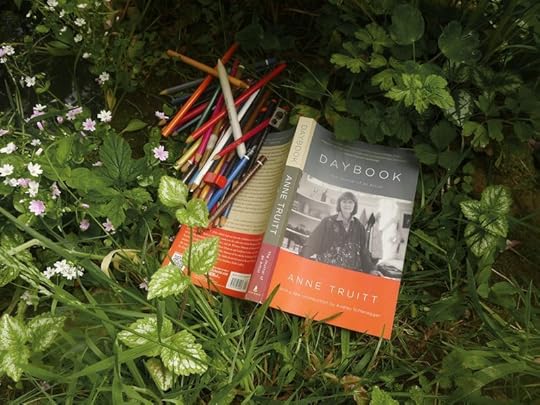 The text in this post is from Daybook: The Journey of an Artist, the first of Anne Truitt's published journals. The poem in the picture captions is from River Flow by David Whyte. Photographs: a bright spring morning on Nattadon -- my first climb since my ankle has healed, and I'm very pleased to be back in the hills.
The text in this post is from Daybook: The Journey of an Artist, the first of Anne Truitt's published journals. The poem in the picture captions is from River Flow by David Whyte. Photographs: a bright spring morning on Nattadon -- my first climb since my ankle has healed, and I'm very pleased to be back in the hills.
Terri Windling's Blog
- Terri Windling's profile
- 708 followers



